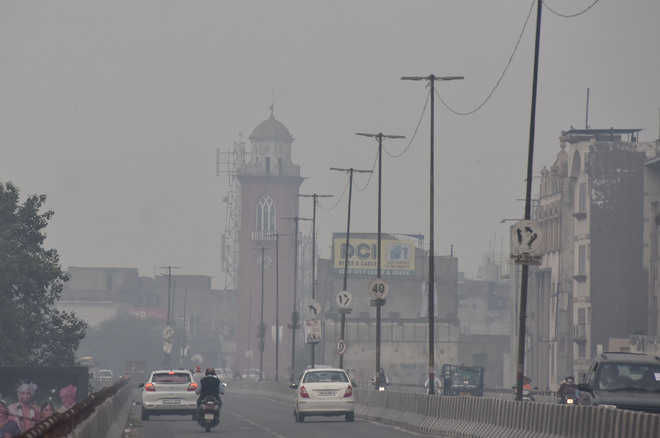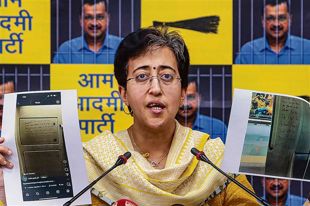
File photo
Ludhiana, January 17
Clean air should be the foremost resolution for the state in 2024, believe experts to address the pressing issue of deteriorating air quality through immediate and decisive action.
Responding to a latest national-level survey report that had figured Ludhiana and another two Punjab cities — Amritsar and Mandi Gobindgarh — among 20 most polluted cities in the country, experts feel the region has been witnessing air pollution reaching alarming levels, posing a direct threat to the health and well-being of its residents.
The said state’s air quality challenges stems from a complex interplay of factors, including vehicular emissions, industrial activities, construction activities, waste burning and agricultural practices.
Experts highlighted that in response to these challenges, Punjab needs a comprehensive strategy for 2024, which includes fortifying air quality monitoring systems, promoting sustainable transportation, implementing stricter emission standards for industries, fostering green cover through afforestation, and encouraging responsible waste management.
Dr Vinayak Sinha, professor at the Indian Institute of Science Education and Research, Mohali, said: “Through a reevaluation of agricultural practices, incorporating irrigation, managing crop residue and ensuring access to cleaner energy sources for heating and cooking to reduce open fires, we hold the potential for a dual triumph, enhancing both air quality and quality of life.”
Sinha shared that curbing open fires would mean addressing a critical element in this transformative journey and a smart shift in approach was not just necessary but imperative to mitigate the escalating fog events and their far-reaching consequences.
“From January, millions in India’s Ganges plain grapple with a unique challenge as fog blends with smoke from fires and vehicle exhaust, transforming into hazardous smog. Beyond jeopardising air quality, this phenomenon impairs visibility, disrupts travel and trade, and poses threats to life and livelihoods,” he added.
At the forefront of advocating for a healthier community, Dr Amrita Rana, a medical practitioner, underscored the pressing need to address and manage air quality in the state. “In the face of deteriorating air quality, it is imperative to prioritise our well-being. The state should make a commitment for clean and healthier air by initiating concrete steps to improve air quality. Failure to address the issue could lead to a surge in health issues stemming from adverse effects of air pollution. Neglecting necessary steps now may result in a future marked by increased respiratory ailments, cardiovascular diseases and a compromised quality of life. Let us breathe life into a healthier future by addressing the air we breathe,” she said.
As an ardent supporter of a healthier Punjab in 2024, Indu Arora, vice-president of Voice of Amritsar, urged the authorities to prioritise comprehensive measures for mitigating dust recognising its detrimental impact on air quality, emphasising the need for implementation of construction and demolition (C&D) waste guidelines in Amritsar, Ludhiana and Mandi Gobindgarh as well.
She advocated for a substantial increase in the adoption of electric rickshaws as a cleaner transportation alternative, aiming to reduce vehicular emissions and contribute to improved air quality.
Furthermore, Indu envisioned a future where the integration of more women driving e-auto rickshaws in Amritsar becomes a reality, fostering both environmental sustainability and gender inclusivity for a breathable and equitable atmosphere in the state.
Dr Sarath Guttikunda, founder director at Urban Emissions, said: “The diverse mix of emission sources in Punjab cities and rural areas require a high density monitoring network to spatially and temporally represent the pollution trends. ”
Dr Supreet Kaur, president of EcoSikh, an NGO for environment protection, while bringing forth a compelling narrative, said: “Planting forests should be the New Year resolution for the state. Our commitment should extend beyond symbolism. Afforestation is pivotal for carbon sequestration, soil enrichment and enhancing biodiversity. Let us all sow the seeds of a greener, more sustainable future for our beloved state in 2024.”
Join Whatsapp Channel of The Tribune for latest updates.




























